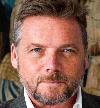Eskom’s four-pronged plug
20 April 2023
President Ramaphosa’s appointment of Dr Kgosientsho ‘Sputla’ Ramokgopa as Minister of Electricity is one of three things: inspired, desperate or pragmatic, but it can’t be all three. If he fixes Eskom and delivers sustainable electricity to the country, it will be regarded as inspired and the defining moment of the Ramaphosa presidency. National interest aside, success in the short to medium term will boost the ANC’s support in the 2024 general election and buttress the second term of a President suffering from a growing crisis of credibility.
Failure, however, will have a compounding effect on the ailing economy, harden voter disaffection with the ANC and possibly turn off the lights on the Ramaphosa presidency. No pressure then.
Yet, Ramokgopa’s appointment as Minister within the Presidency is itself an acknowledgment of failure, not only of Eskom and its business model, but also its relationship with its state shareholder. It also signals far deeper pathologies operating within government and individual power plays between Ministers. Absent the wisdom of Solomon, the creation of the new Ministry may be viewed as Ramaphosa’s solution to a set of intractable problems.
The fundamental challenge that is beyond the Ramaphosa presidency is to rethink the role (if any) of state-opened enterprises in contemporary South Africa. The litany of SoE failure conveys a trail of collapse, waste and abuse, all funded by the South African taxpayer. Worse still, the collapse of SoEs has resulted in the failure of services to the neediest in society.
With respect to Eskom specifically, recent evidence points to a power utility that is so riven with corruption and fraud rising to the very highest levels, that it presents an unprecedented challenge to the state itself. Despite the voluminous evidence laid before the Zondo Commission, the National Prosecuting Authority is yet to successfully prosecute any of the major players orchestrating and benefiting from state capture.
Secondly, the configuration of the monopolistic power utility is demonstrably unfit for purpose. The promised ‘unbundling’ of Eskom into three operating entities, namely, generation, transmission and distribution appears stillborn. Yet such unbundling has the potential to enhance efficiencies and accountability, assess what Eskom does well and what it does badly and holds the potential for a greater contribution to energy generation from alternative sources and the private sector.
It may also permit greater flexibility for bulk electricity consumers such as municipalities, or at least those who pay. Yet, while the initiative was announced in 2019, it remains many gigawatts away from implementation.
But most tellingly, the appointment of a Minister of Electricity in the Presidency sends the clearest signal that neither the responsible Minister, Pravin Gordhan, nor the Minister of Energy, Gwede Mantashe are up to the task. It is clear that Gordhan’s former glory days as SARS Commissioner and Minister Finance are not replicable in the dinosaur-laden Department of Public Enterprises.
No doubt Gordhan’s previous success teed him up as the ideal Minister to clean up and turnaround this Frankenstein’s monster of a department, yet it remains a horror show of epic proportions. Gordan’s woes were deepened by the breakdown in his relationship with former Eskom CEO Andre de Ruyter and the latter's hugely embarrassing revelations broadcast on national television.
While Gordhan may have bought into De Ruyter’s vision for a completely re-engineered and greener Eskom, he failed to protect his CEO from the scurrilous and unwarranted attacks levelled by Gwede Mantashe, to the effect that De Ruyter was deliberately complicit in bringing down the government.
This raises the most concerning element to the static electricity crackling around the political relationship between Ramaphosa, Mantashe, Gordhan and Ramokgopa. While the three ministerial amigos are all key Ramaphosa allies, Mantashe is vital to Ramaphosa’s ascension to and retention of office.
Not only was he critical to ‘dealing with’ the Zuma supporting faction of the ANC and nullifying the political support of the radical economic transformation faction, if the rumours are true, it was he who was principally responsible for talking the President around from resigning from office in the wake of the Phala Phala report.
The quid pro quo for this position of insider power is that Mantashe has the upper hand in bringing Eskom under his department and redirecting its future. Publicly sceptical of a greener and renewable future for the power utility, Mantashe is not only wedded to Eskom remaining a wholly-owned and publicly funded power utility, if he has his way, its future lies in coal and more coal.
While there is a clear and demonstrable argument for coal remaining an important element to South Africa’s energy mix over the medium term, a future pathway to sustainable renewable energy is not only imperative, but is government policy. Moreover, South Africa committed itself to a green just energy transition as part of the record $8,5 billion of funding pledged by the World Bank and donor countries at the Glasgow climate change conference of November 2021.
So where does all this this leave the newly-minted Minister of Electricity? The clock is ticking and the odds are stacked heavily against him. Since being appointed his public pronouncements have not exactly instilled confidence. After concluding his flying visit to all 14 Eskom power stations, the Minister declared that everyone was highly motivated and that corruption was not a factor in power cuts. But perhaps the most alarming public pronouncement was that consistent energy availability will end load-shedding. Really?
But whoever is ultimately responsible, the inconvenient truth for the government and the ANC is that inconsistent energy availability may end more than just Eskom.
Ian Kilbride is Chairman of Spirit Invest and Spirit Foundation as well as Honorary Professor at Stellenbosh Business School.

